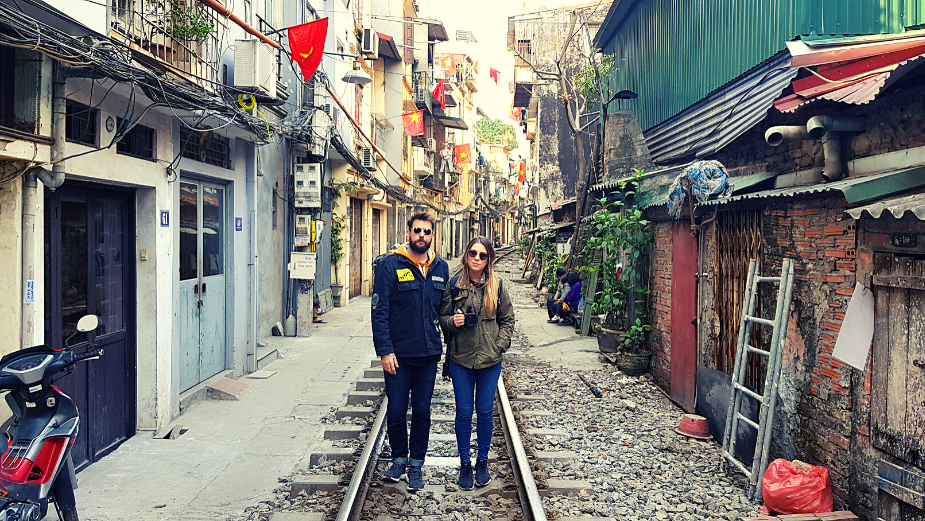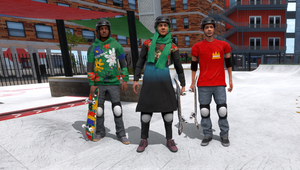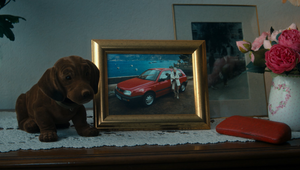
Freedom, Hope, and Music’s Power: The Story of The Uncensored Playlist

“When we first started this project, we weren’t going to show our faces for fear of what might happen. So to see them now, on a documentary for Cannes, is quite a wonderful turnaround!”.
Anyone would forgive Lucas Mayer and Iris Fuzaro for feeling apprehensive. The Uncensored Playlist, a project created by DDB Germany for Reporters Without Borders, was the kind of idea that could aggravate some powerful people. Seeking to bypass government censorship in countries across the world to report true stories, the campaign aimed to tell those stories through song. If the words alone were banned in states such as Egypt, Thailand, and Uzbekistan, then perhaps music could tell the vital stories.
The result was an utterly unique campaign which crossed borders and, for many, changed the course of history. Stories which may otherwise have never been told are now known and understood, all thanks to The Uncensored Playlist.
Above: Listen to The Uncensored Playlist on Spotify. The project is also available on Apple Music and Deezer.
An Uncensored Documentary
The campaign was widely celebrated upon its initial release in 2018, winning over 200 awards including a Cannes Titanium Lion. Now, however, it is one of a select number of projects chosen by Cannes Lions Live to receive a ‘making of’ documentary, taking viewers behind the scenes of The Uncensored Playlist. For Lucas and Iris, this sustained critical acclaim was never part of the plan.
“It was a pleasant surprise, for sure!”, says Iris, who previously worked with Lucas as a filmmaker on their joint project Le Tour Du Monde. “Obviously, nobody foresaw us winning all of these awards and it’s enormously humbling. But I think the feedback and reception we got right from the beginning is what has helped make this into the project it is”.
“What’s great about the documentary”, explains Lucas, “is that it does show the difficulties, the fears, and the challenges that this kind of intense work demands. It’s honest, and that’s a great testament to The Uncensored Playlist as a project. Watching it is like going through an old photo album, and feeling the emotions you felt at the time soar back to life”.
With the documentary releasing more than two years since the initial release of The Uncensored Playlist, there’s a fair chance it will present the project to a new audience. For Lucas and Iris, that’s all part of its appeal. “I hope that the documentary can help people to feel what we felt”, says Iris. “Specifically that this type of work can raise the flag, inspire, and encourage more people to have creative and courageous projects”.
Above: ‘The Uncensored Playlist’ was one of just six campaigns chosen to receive a documentary by Cannes Lions Live in 2020.
Turning Back Time
Like leafing through an old family photo album, then, The Uncensored Playlist’s documentary encourages its participants to reflect back on the time at which it was made. “Honestly, it felt like we were on a secret mission”, laughs Lucas. “It was an amazing time and I’m so happy with the documentary. It makes me want to create another one - maybe one in which we get to speak to all the people who only appeared on the credits. I’m thinking of Markus Thomas, Wonder Bettin, Rodrigo Deltoro, Ricardo Wolff, Gabriel Mattar, and Jack Christensen, not to mention all the musicians and journalists that made it possible. They could tell even more stories behind the scenes and make it even bigger. Netflix, maybe?!”.
“So much of the project was unique”, recalls Iris. “We didn’t have conventional meetings where everything was planned out, and where everyone knew exactly what would be delivered. We just had an idea, and our partners had to trust that we would deliver the best work that we could. Like so many successful projects, the secret to success was the complete trust between the client involved in this project and ourselves”.
One thing that has become clearer for the pair over time, however, were the risks they were running through their involvement in the project. “With a little distance”, notes Lucas, “It’s clear there was a significant degree of risk involved for all of us. They were all calculated risks, of course, and we received a lot of support from the creative team in Berlin and the staff of Reporters Without Borders. But it also highlights the risks that people who work in journalism face every day. It’s eye-opening and humbling”.
Powerful Enemies
There can be no doubt that The Uncensored Playlist was a risky project. The governments whose censorship policies the creatives hoped to subvert rank amongst the world’s most powerful, and working with journalists based within their borders posed unique risks. One notable run-in with the authorities is captured in the documentary, when Iris recounts how a police officer confronted her and Lucas, taking their camera. It looked for a while after the incident that the project - and the safety of those involved - could be in danger.
And yet, neither Iris nor Lucas is concerned when it comes to potentially creating some powerful enemies. “Right now, I don’t think making powerful enemies is necessarily a negative thing. Some people are using their privileges to misinform, increase inequalities, and contribute to building a less creative world, with less music and a lot of control over people's lives. So it’s important to make enemies of these people. We certainly don’t want to be their friend!”.
“Our generation grew up with censorship”, adds Lucas. “Ever since Brazil’s most recent dictatorship came to an end in the late 1980s, the transition to a democratic republic was a period where we learned to enjoy and understand our democratic rights. This means that censorship for us is a thing of the past. And yet, reliving this process in our own flesh in these five countries that we visited to produce the songs, it motivated us to consider how things can change. It could happen again, and we need to be aware of it”.
Music Can Change The World
So, two years on from The Uncensored Playlist, do Lucas and Iris feel more or less confident around the state of censorship in the world?
“I believe that the world is always arguing about old and new models of society,” says Iris. “However, we are living in a moment full of answers to these disputes, thanks to a new generation that is affirming you cannot stop progress. Nobody can. Not us, and not these powerful governments either. So I do feel hopeful, yes”.
“We will always beat censorship”, agrees Lucas. “And if we can do it with music, all the better”.













